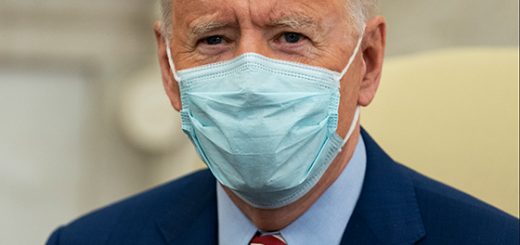Animal spirits unleashed.
Listen To You Tell Me Texas Friday 1/5/18
Download
William Murchison, late of the Dallas Morning News and now writing for American Spectator, penned a piece Wednesday bearing the title, “Here Come the Animal Spirits.” Murchison quoted a New York Times article that said, in part,
In the administration and across the business community, there is a perception that years of increased environmental, financial, and other regulatory oversight by the Obama administration dampened investment and job creation — and that Trump’s more hands-off approach has unleashed the ‘animal spirits’ of companies that had hoarded cash after the recession of 2008.”
Murchison punctuated the quote with, “Duh. Ya think?”
For eight years we have been told that stagnant wages and weak business investment constituted a new normal. We were told that the housing crash of 2008 necessitated a larger role for government in the American economy.
For too long, we were told, business had exploited workers and consumers and the environment for the disproportionate benefit of the “one percent.” (That many of the most ardent promoters of this lie are themselves part of that one percent is an irony too often overlooked.)
For too long, the American economy had been left to chance by allowing individual Americans to make too many of their own economic decisions.
Such is the condescension of America’s new ruling class that came to full flower during the Obama years. It is hard to the point of impossibility for northeast liberals to imagine how the ordinary souls of places like Knoxville, Tennessee and Wichita, Kansas could ever successfully manage their own lives. Trust the instincts – animal or otherwise – of such unsophisticates? Consign the fate of the American economy to daily individual decisions of people with degrees from State U, or Acme Vocational College? Are you kidding?
How could Jim Bob Jenkins – with his admittedly successful auto repair shop but no college degree – possibly make good economic decisions on his own? What if Jim Bob doesn’t fully appreciate climate change?
To the minds of the Washington/New York-corridor ruling class – of both parties, by the way – the millions of discreet economic decisions made by the millions of Jim Bobs are no match for an elite corps of properly-pedigreed appointees and permanent government technocrats. Liberals cannot make themselves believe that millions upon millions of discreet decisions made by guys who wipe their hands before they shake yours could ever add up to economic success for the entire country. They just can’t imagine it – the clear evidence of the past two centuries notwithstanding.
(Let us not forget that Jonathan Gruber knows that Jim Bob is beset by “stupidity” and that Barack Obama knows that he’s a “bitter clinger” and that Hillary Clinton has unmasked him as “deplorable.”)
Such arrogance and condescension informed the economic policy of the last administration. One year of the Trump presidency has turned all of that on its head.
Trump’s promise-made, promise-kept plan to cut three existing federal regulations for every new one has been hugely consequential.
Freed from the prospect of more regulation and more economic micromanagement, businesses have resumed hiring and investing and planning for a bright future.
It is the starkest possible contrast and one brought about at a speed unmatched by even the great Ronald Reagan.
Such is the summary of year one of Donald Trump.









You hit this one “out of the park” Paul. I have experienced this attitude from some of my liberal friends. It seems like “the impossible dream” to try and give them FACTS, mainly I think, because we are rubes and uncultured hicks.
It has often puzzled me that the very ones who try to convince us “rubes” of how we are taken advantage of by the one percent who do not pay their fair share of taxes are actually those who make up the very one percent they are talking about. It never made a bit of sense that they would be saying they are not paying enough, yet if you investigate their personal wealth status, you find that they take every advantage of every loophole in our tax system to save themselves money on taxes. So, they are talking about themselves. But they hold themselves, in their eyes, as on our level. This is a liberal tactic that has worked for a very long time. You can shout FACTS all day long to a liberal and it goes right over their heads. Liberals try to confuse US by putting themselves on our level, when they have no idea how we live from day to day than a pig does Sunday. They are telling US about themselves every time they open their mouths, but the majority of us don’t hear it. I have said this a hundred times…what the liberals fear most is that President Trump WILL succeed! That success will show how dishonest the liberals have been with the American people for no other reason than to keep their nest feathered. President Trump’s success will show all the left’s FAILURES. In doing that, means the jig is up.
Another excellent column with J. Lester and Ms. Montrose on the money, too. I, too, find that my liberal friends have no interest in discussing issues, preferring instead to name call. Just the other day one posted on Facebook that Paul Ryan was an Adolph Eichmann, with a made up quote attributed to Ryan, “I don’t want to give up my position as speaker without first destroying the country.” Political discourse with such “thinkers” is not possible.
Oh how cynical! Could it be possible that the previous administration created all of the economic headwinds to control the epidemic of illegal immigration? One must really look at the apparent economic failures of Barry O as a more broad and brilliant strategy to fix this difficult problem. My theory is that he was trying to create such a poor economic climate in this country, so that the opportunities here would be fewer than in the countries from which the “undocumented immigrants” were fleeing. Therefore, those who had come here seeking an opportunity to improve their lives would be leaving the U.S. for the same reason. Problem solved! Simply brilliant! Much like many of his other policies that were instituted. If Hillary had only been elected, the Democrats would be screaming for a wall to be constructed across our Southern border; not to keep illegals out, but to keep their potential voters in. So……in 2018 l resolve to be less cynical and more understanding of their true motives. “Duh. Ya think?”
Excellent again my friend.
One scotched regulation will make your diligence even more conspicuous:
The FCC’s now-defunct “Main Studio Rule” actually required local broadcasters to (wait for it) broadcast locally!
Now your radio station competitors — debt-hobbled corporations headquartered elsewhere — can beam-in robotic programming from The Mothership…NOT NEARLY as relevant to listeners as your home-grown local news and thoughtful Texas take.
Thank smilin’ Ajit Pai, FCC Chairman and corporate media puppet. And for his next trick, the ex-Verizon lawyer killed-off Net Neutrality, which has your cable company and big telcos licking-their-chops.
After reported death threats, Pai just abruptly canceled his appearance at this coming week’s Consumer Electronics Show.
My initial reaction to the FCC proposal to eliminate the Main Studio Rule was to oppose it. The very idea of operating a local radio station from afar with no local presence whatsoever is an assault on my lifelong sensibilities as a broadcaster. Yet I’ve changed my mind about wanting the FCC to keep the Main Studio Rule in place.
You are correct. A broadcaster who takes the elimination of the Main Studio Rule to its logical end will ship in programming via IP or satellite and it will lack “home-grown local news and [a] thoughtful Texas take,” along with anything else that might make it uniquely relatable to a local listener. And the marketplace will judge the product for better or worse accordingly. This isn’t 1947. Today there are plenty of radio stations on the air. Too many, one might argue. There is a sufficient “supply” of signals as to afford letting some station owners get it wrong without an unacceptable impact on the public interest.
This leads to an important question. How well was the industry doing with respect to “home grown local news and a thoughtful — market name here — take” before the elimination of the Main Studio Rule? For that matter, what good decision and what good regulation leading to industry growth and prosperity has the FCC promulgated in the past 30 years? (YTMT readers, please pardon the “inside baseball” that follows.)
Was Docket 80-90 a success? Did it achieve its goal of promoting minority ownership of radio stations? How about the AM band? AM is a perfectly viable medium yet decades of perfectly awful FCC policy regarding it have left the band in a complete mess (remember the debacle of AM Stereo?). I could go on but I’ll spare you and my readers.
If we’ve learned nothing else in fifty-plus years of an ever-growing role of the federal government in commerce and industry, we’ve learned this: you cannot regulate your way to success. The internet is the world-changing phenomenon that it is in very large measure because of the almost total absence of government involvement in it. My internet connection of today costs half as much as my first one and yet it is several thousand times faster.
Thousands of reams of banking regulations did not prevent the mortgage meltdown. SEC examiners working inside Bernie Madoff’s office did not keep his investors from getting scammed. When it comes to managing through regulation a $17 trillion economy in a nation of 320 million people flung across the entirety of a continent, the federal government is quite inept.
Which do you prefer — a ride in a tightly-regulated Washington, D.C. cab (arguably the worst cabs of any major U.S. city) or a ride with a much more lightly-regulated Uber driver?
Federal regulation of the internet using the same model as that used on the old Bell System — which is exactly what Net “Neutrality” was? You have to be crazy to want that.
All of which discussion is beside the point of my piece, anyway. The thrust of my piece is this: Donald Trump has informed the marketplace loudly, clearly and unmistakably that the regulatory burden on business is going to be lightened. The marketplace has responded — loudly, clearly and unmistakably.
Some people just can’t take a compliment!
:)
And rather than regulation which protects the consumer, we’ll “rescue” the Too Big To Fail big banks again.
If only THAT government intervention could be as fruitful as the job-saving, interest-bearing GM rescue.
Aha! Common ground!!
I’m with you on the too-big-to-fail banks. But by citing them you make my point. The gross overreaction by the federal government to the mortgage meltdown has served only to further entrench them.
The regulatory burdens that the Dodd-Frank law unleashed are crushing community banks. Whatever the reluctance to do so, Bank of America nevertheless has the resources to hire people to meet the compliance burdens of Dodd-Frank. First National Sweetwater, however, is much less able to cover that cost and remain profitable. As a result, since 2010, a huge number of locally-owned banks have been gobbled up by the too-big-to-fail behemoths.
Meanwhile, locally-owned small businesses are finding it more and more difficult to round up debt capital. You can’t appreciate this until you’ve experienced it. Try walking in to a Wells-Fargo or a B of A in search of a $500,000 loan to replace your aging widget press. Doing so will open your eyes in a way that mere words cannot.
Meanwhile, the local bank that might have at one time had an appetite for that loan is tied up in regulatory knots to the point that they can only make the loan if you can prove to them beyond any doubt that you don’t need the money.
Federal regulation should be no further involved in business than an umpire is in a baseball game. Set clear rules. Enforce them without any bias toward any participant. And otherwise, stay out of the way.